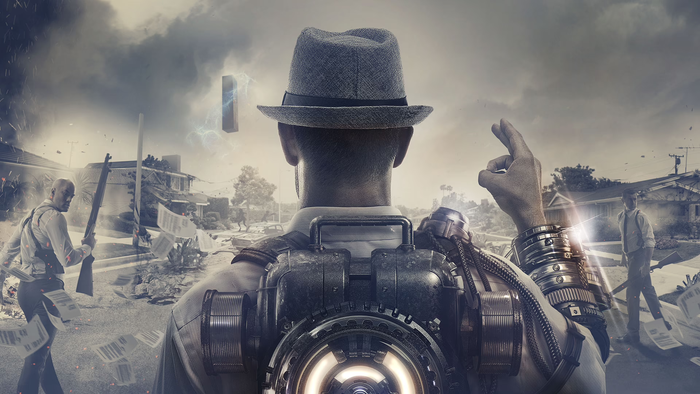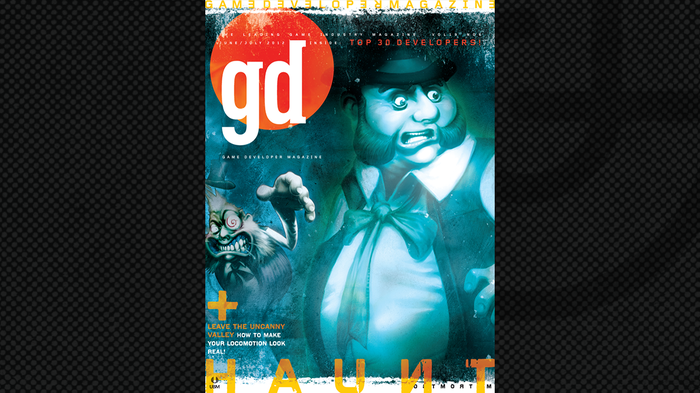From XCOM to X-wings: How Bit Reactor is rethinking the rules of strategy design
"We need to look at whether there are opportunities in these games to reward players that actually enhance our design choices."

Bit Reactor has big ambitions. The strategy studio, established two years ago by former Firaxis art director Greg Foertsch, has been tapped to develop a new Star Wars strategy game in collaboration with Respawn.
Although Respawn will produce the unnamed title, Bit Reactor has been asked to lead development. It's some way to make your debut, and Foertsch—who, as well as co-founding Bit Reactor, is also serving as CEO and creative director—has been working hard to ensure the nascent studio is capable of rising to the challenge.
The industry veteran, who's helped ship a myriad of strategy titles including XCOM 2, Civilization IV, Railroads!, and XCOM: Enemy Unknown, has spent the past two years growing the Bit Reactor team to over 50 employees in the hopes of pushing the strategy genre forward.
Bit Reactor wants to be "creatively driven but fiscally responsible"
Speaking to Game Developer, Foertsch explained he was inspired to found Bit Reactor after doing some consulting work on Empire of Sin for Brenda and John Romero. "Their studio culture [at Romero Games] is amazing," he explains. "Just watching two creatives run a studio made me realize you don't need to have an accountant run the company. We're creatively driven but fiscally responsible, and that's how we're going to be smart about how we handle things."
Foertsch says it's critical that Bit Reactor hires people and then actually trusts them to do their jobs, whether that's on the development or business side. "The most important tools in making a game are the people that sit in the chairs," he notes. "I think we're really developer-focused, by which I mean that whenever someone walks in the door—whether they're the creative director, associate producer, or concept artist—they're asked to contribute ideas equally. There's no class system to ideas, and we want everyone to feel comfortable bringing their idea to the table."
It's a mindset Foertsch believes will help Bit Reactor think progressively about strategy design. He says the best ideas often come from the place you least expect, so there's no point in slavishly looking inward if you want to break new ground.
"I think you'll find that about half of our team come from a strategy background and half don't. That was 100 percent intentional," he adds. "For instance, we've got people who've worked on Gears of War. Our cinematic director, he worked there with Coalition so he's bringing a whole different perspective to our camerawork. That's just one example, but we've been intentionally integrating people that have different perspectives."

Carrying that thread, Foertsch feels the strategy genre has too often been shaped by systems designers in creative positions. The pros and cons of the resulting experiences are open to debate, but he suggests it's led to an overriding belief within the space that "depth has to cost you elegance."
He says dismantling that notion is what drove the team who worked on XCOM. "[We wanted to prove] you can have immersion, you can have good stories, and you can pull players into those moments by elegantly enforcing the design. [...] It doesn't matter what franchise it is. We need to look at whether there are opportunities in these games to reward players that actually enhance our design choices and push them forward, without always feeling like it comes at a cost. Getting players to understand that 'I can have those two things' has always driven me," Foertsch continues.
He suggests the strategy genre might have looked inwards for so long because it was often a "bit shunned on consoles." At one point, there was sound reasoning for that. "Maybe you didn't have the resolution to put UI on-screen and supporting controllers was finicky," says Foertsch, who quickly points out many of those hurdles no longer exist. "I think XCOM plays better on a controller," he quips, noting that the evolution of UX has also enabled more seamless porting between platforms.
"I think a lot of strategy games in the past have leaned into a lack of more accessible features [such as controller support] as a badge of honor," Foertsch continues. "I don't agree with that. I think trying to make your game as accessible as possible is one of the pillars of systems design and should inform how studios approach development nowadays. We should look to remove barriers to entry, irrespective of the platforms we're targeting."
Respect what came before, but don't be afraid to leave it behind
Outlining how that belief will influence Bit Reactor's own design philosophy, Foertsch says the studio is intent on becoming "a lot more open minded." Hiring creatives who don't come from a traditional strategy background means the studio is able to bring in ideas from other genres during the earliest stages of development. "They're bringing that knowledge in, and that's one the best things about the game industry today. You can start to see the influence of all these different genres touching each other."
To reap the benefits of that approach, Foertsch explains Bit Reactor asks new employees to take the studio's debut project for a spin so it can see there they stumble and where they succeed. Those playthroughs are recorded so the entire team can see what ideas are working, and which need to be revisited. "It's about getting everybody—myself included—to realize they can't be precious about ideas," he says.

The team also strives to playtest as a group every two weeks. Some might take the controller while others watch and listen. Others might choose to play at their own desk. But all of that feedback is compiled and assessed to chart a path forwards without a sense of prejudice. "One of the things we've wanted to instill is taking the emotional part out of it and evaluating things fairly," Foertsch says. "It's something that's crucial to the process."
Taking a more pragmatic approach to those decisions will perhaps allow Bit Reactor to take the strategy genre into uncharted waters. Emulating your peers because 'that's the way it has always been done' isn't conducive to change. Sometimes you need to question the status quo. "You need to evaluate an idea and genuinely ask 'is this good? Or was it deemed good because of the tech that was available at the time?' That's how I approach design in general," says Foertsch.
"You can go into a museum or gallery as an artist and want to see what people did before. You can want to understand how and why they did something, but then you also need to apply what makes sense to you right now. [...] It's about having that respect for what's been done before, while also being committed to continue pushing forward and seeing what might actually fall away."
Read more about:
FeaturesAbout the Author
You May Also Like









